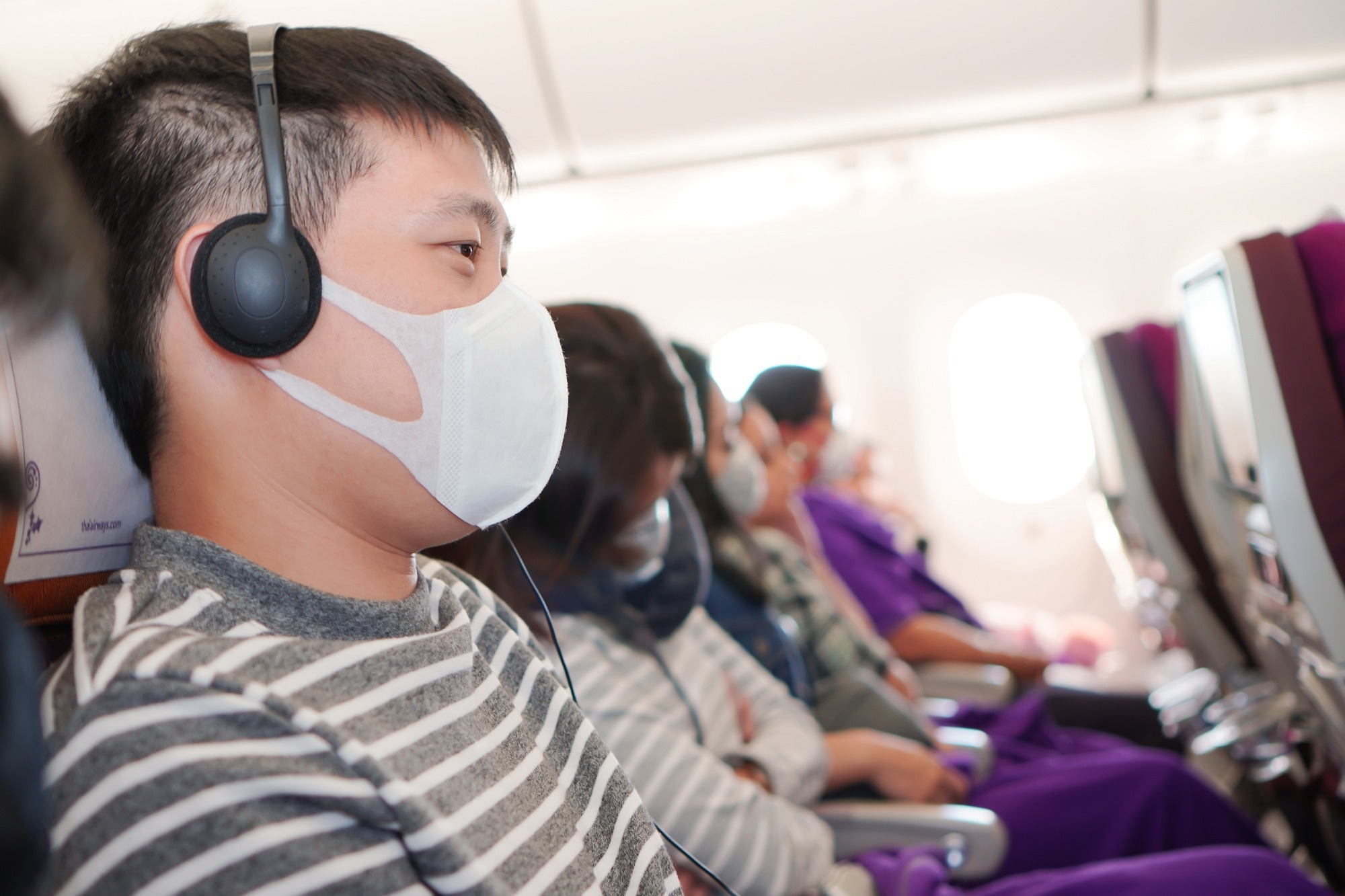In a recent study published in the International Journal of Environmental Research and Public Health, researchers in the United States (U.S.) conducted a systematic review to determine the factors involved in the transmission of severe acute respiratory syndrome coronavirus 2 (SARS-CoV-2) within flights.
 Systematic Review: The Risk of Aircraft-Acquired SARS-CoV-2 Transmission during Commercial Flights: A Systematic Review. Image Credit: Lek in a BIG WORLD / Shutterstock
Systematic Review: The Risk of Aircraft-Acquired SARS-CoV-2 Transmission during Commercial Flights: A Systematic Review. Image Credit: Lek in a BIG WORLD / Shutterstock
Background
The rapid transmission of SARS-CoV-2 across the globe and the coronavirus disease 2019 (COVID-19) pandemic were greatly facilitated by infected individuals moving across various continents through air travel. The strict disease mitigation measures included restricting air travel and closing all modes of long-distance travel in some countries. Naturally, these measures resulted in significant losses in airline and tourism-associated revenues, with many governments having to provide wage subsidies and monetary aid to help the aviation industry.
Although global travel and tourism have now returned to close to pre-pandemic levels, the continued emergence of novel SARS-CoV-2 variants poses the risk of a resurgence of severe COVID-19. The U.S. Centers for Disease Control and Prevention have stated that the transmission of the virus increases in places where individuals are enclosed and follow minimal distancing, which are conditions typical of an aircraft. Therefore, it is essential to understand the factors contributing to increased virus transmission inside the aircraft.
About the study
In the present study, the researchers reviewed published reports of the plausible transmission of SARS-CoV-2 inside commercial aircraft. They analyzed the information from these reports to determine the significant factors that impact the transmission of the virus within the aircraft.
Studies have found that the transmission of airborne diseases inside enclosed spaces such as aircraft cabins depends on factors such as mechanical ventilation, duration of the flight, and number of individuals in the cabin. There have also been instances of SARS-CoV-2 transmission within aircraft despite using high-efficiency particulate air (HEPA) filters. However, a clear understanding of the risk of SARS-CoV-2 transmission in flights based on strict masking and flight duration is still lacking.
The review included any reports with index cases and flight duration information. Any reports concerning non-commercial flights or air transport, such as helicopters, air ambulances, or naval aircraft carriers, were excluded, as were reports that did not include flight data.
Flights that included information on masking were categorized as unenforced or enforced masking based on whether passengers reported using a mask voluntarily or there were strict protocols for passengers and flight attendants to wear masks. Furthermore, since all the masking data came from long-haul flights that included meals, mealtimes were assumed to be periods where masks were not worn.
Only flights with index cases were included in the analysis to ensure that the transmission of SARS-CoV-2 was preceded by exposure to an infected individual on the flight. The association between flight duration and the transmission of the virus inside the aircraft was investigated by grouping the flights into haul types based on the duration of the flight and analyzing the infection ratio. The infection ratio was calculated by dividing the number of aircraft-acquired SARS-CoV-2 cases by the number of index cases in the flight.
Results
The study found that compared to short-haul flights without enforced masking, long-haul flights with no strict masking had a 25.93-fold increase in COVID-19 incidence rates, while medium-haul flights had a 4.66-fold higher incidence rate. However, long-haul flights where masking was enforced reported no transmission of SARS-CoV-2, indicating that masking could significantly lower aircraft-acquired COVID-19.
Furthermore, in flights with unenforced masking, each hourly increase in flight duration increased the transmission incidence rate by 1.53-fold. The reduced duration of exposure to aerosols and the non-inclusion of meals make shorter flights safer since they lower the probability of expelling aerosol particles or coming in contact with them.
The study also found that long-haul flights with enforced masking had almost no reports of SARS-CoV-2 transmission within the aircraft despite meals being served. The researchers believe the enforced masking could have caused the passengers to eat as quickly as possible. Furthermore, enforced masking also allows the flight attendants to ensure that passengers are appropriately masked.
Conclusions
Overall, the study found that flight duration was a factor in the transmission of SARS-CoV-2 within the aircraft in flights with non-enforced masking. In contrast, long-haul flights with enforced masking had no reports of transmission of SARS-CoV-2 within the aircraft despite serving meals. The researchers also found that each additional hour of flight was associated with a 1.53-fold higher probability of viral transmission in flights without enforced masking. These findings highlight the protective effect of face masks against SARS-CoV-2.
Journal reference:
- Zhao, D., Cheng, S., Tsui, F. R., Mathur, M. B., & Wang, C. J. (2024). The Risk of Aircraft-Acquired SARS-CoV-2 Transmission during Commercial Flights: A Systematic Review. International Journal of Environmental Research and Public Health, 21(6), DOI: 10.3390/ijerph21060654, https://www.mdpi.com/1660-4601/21/6/654